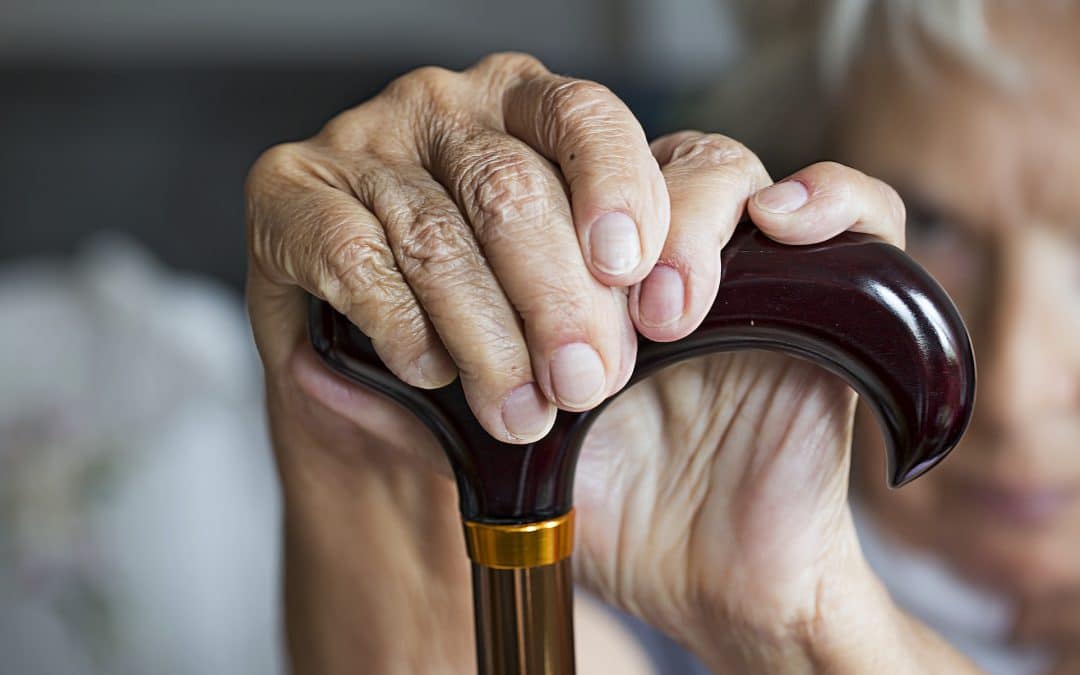
by Alliance VITA | September 25, 2020 | Old age and Dependency, News
On September 22, French President, Emmanuel Macron announced during his visit to an “EPHAD” (nursing home establishments for aged and dependent individuals) that a bill for the elderly is being planned for the beginning of 2021.
The advisory phase called the “Laroque of Autonomy”, is named after the resistance fighter, Pierre Laroque, known as the founder of “Social Security” or the French National Health Insurance Program in 1945.
Although the bill has previously been postponed several times, it has now been put on the fast-track due to the current health crisis. In his statement, President Macron said: “This virus has sometimes reminded us that we must cope with death and vulnerability, and it has shown us that we are more vulnerable at a certain age. It has led us to acknowledge that our population is aging. This means our response has to be adjusted.”
In recent months the problem of the elderly being isolated, and the difficulties for those who take care of them in the EHPAD’s, have been brought to the forefront. Following a parliamentary investigation led by MP, Eric Ciotti, a report evaluating the management and consequences of the coronavirus crisis was published on August 28th.
During the early stages of the pandemic, Alliance VITA issued a press release to warn that many elderly persons were facing discrimination. Due to the lack of resources in some medical facilities, the elderly were potentially being exposed to a greater risk of euthanasia.
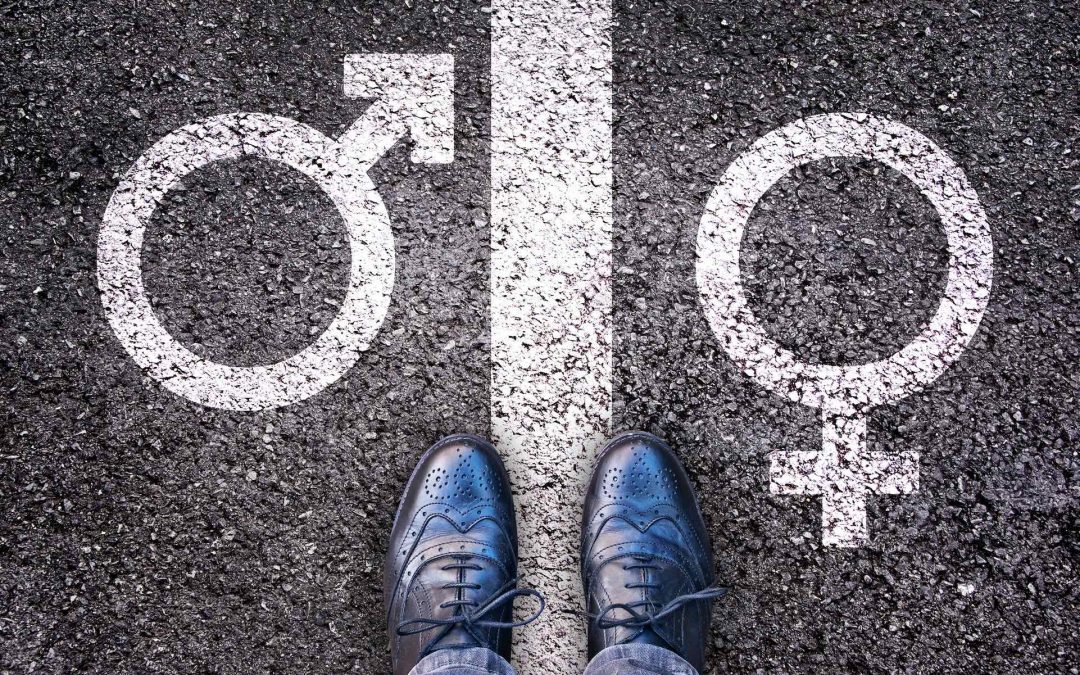
by Alliance VITA | September 18, 2020 | News, Gender
Following 6 years of legal battle over the daughter’s birth certificate, on Wednesday, September 16, the Court of Cassation rejected a transgender person’s appeal to be listed as a second mother.
After the birth of his first two children, the Frenchman who now goes by the name Claire, had his civil registration modified to reflect his gender reassignment as a female, prior to his sex change operation.
Thus, while his male genital organs were still intact, the couple conceived a third child, but Claire has refused to be registered as the child’s father on the birth certificate and has filed court claims to be recognized as the mother.
According to the French newspaper, “Le Figaro”, the Court of Cassation ruled that
“a transgender man turned woman, who procreates with his male gametes, following the modification of the civil registration, retains the right to claim a biological relationship with the child.” But this can only be accomplished by “using the means of declaring filiation reserved for the father”.
The Court also added that these provisions “coincide with the best interests of the child” since the child’s filiation with both parents is registered and it attests “to the actual conditions of the child’s conception and birth”. The judgment specifies that this solution guarantees “the right to know one’s personal origins”. Since the couple had two other children before Claire’s change of gender was recorded on the civil registration, the French high court also held the little girl’s civil registration needed to be coherent “with that of her elder brother and sister” in order to avoid “discrimination between siblings”.
The lawyers representing “Claire” intend to submit the matter to the European Court of Human Rights.
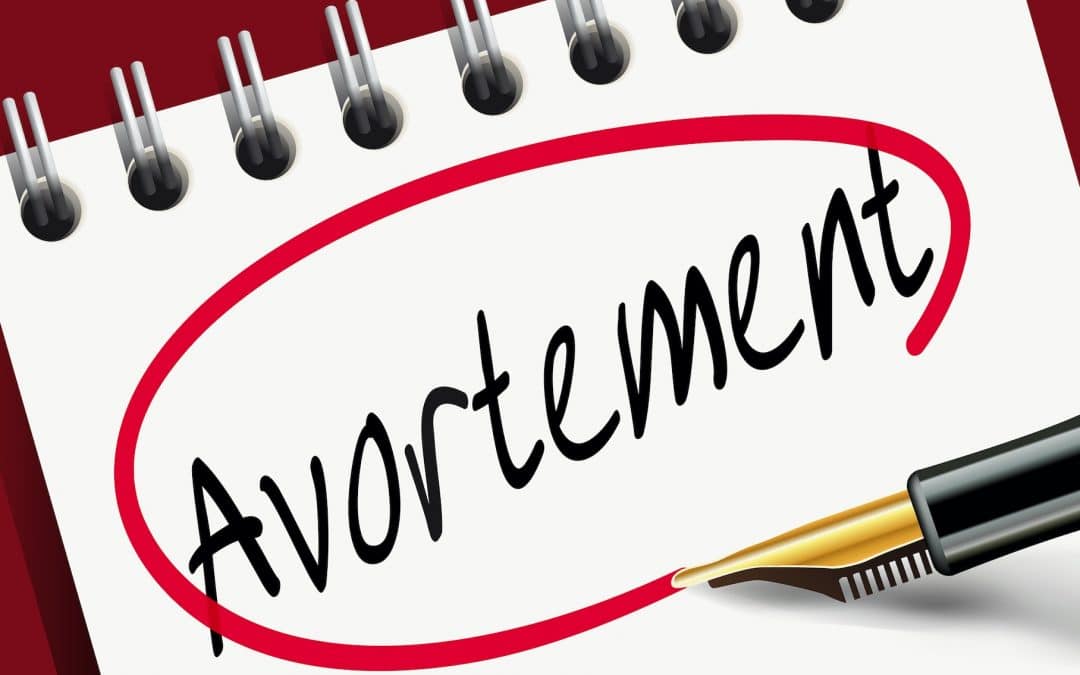
by Alliance VITA | September 18, 2020 | Abortion, News
Once again, abortion advocates in France are attempting to implement amendments which would completely obviate existing abortion laws, without even considering how women could avoid having recourse to abortion.
In France, on September 16, the National Assembly’s delegation for women’s rights delivered a rather one-sided report on abortion. The report specifies no less than 25 recommendations intended to provide easier access to abortion, the most emblematic of which include:
- extending the legal deadlines for abortion, from 12 to 14 weeks pregnancy,
- adding the unverifiable criterion of “psychosocial distress” to allow the so-called medical abortions to be performed upon demand,
- extending the deadline for having a drug-induced abortion at home from 5 to 7 weeks pregnancy, and
- abolishing the explicit freedom of conscience clause for healthcare professionals.
Although France has a high rate of abortions (with 224,300 cases in 2018) no proposals for preventing abortion have been submitted. It is not exaggerated to denounce this report as one-sided. It is neither based on sources of reliable research, nor on verified data, especially concerning the numbers and the causes of late-term abortions performed abroad.
Just prior to this report, on August 26 a draft law “enhancing abortion rights” was tabled by deputy Albane Gaillot (from President Macron’s centrist and liberal party “LREM”: La République en Marche) and co-signed by some 40 MP’s from various left-wing parties. There are two articles:
- prolonging abortion deadlines from 12 to 14 weeks pregnancy, and
- abolishing the explicit freedom of conscience clause for health professionals.
It is scheduled to be discussed on October 8 at a parliamentary niche in “La France Insoumise” (left-wing, eco-socialist party). The proposed bill is not likely to be approved; nevertheless, it helps gain ideological ground in favor of unlimited abortion.
Ambushed during the COVID crisis
This latest controversy started at the beginning of the health crisis in March when the French Senate was discussing national emergency health measures. An amendment that tried to extend the statutory deadline for performing abortions from 12 to 14 weeks of pregnancy, was finally rejected. At issue was the decrease in the number of abortions at the beginning of the crisis. These numbers were interpreted as a sign that it would be difficult to respect statutory limits for abortion during the health crisis. Bowing under pressure, the Health Minister, Olivier Véran, promised that depending on the actual requests, he would consider qualifying “psychosocial distress”, as an eligible reason to allow abortions up to 9 months of pregnancy on full-term infants, if the abortion had been delayed by the health crisis.
On April 14, 2020 a new decree became effective, which extended deadlines for having drug-induced abortions at home from 5 to 7 weeks of pregnancy during the Covid-19 health crisis. Alliance VITA then filed a suspensive proceeding to denounce the French Health Minister for abuse of power and for implementing measures which involve serious risks for women, both physically and psychologically.
Again, two amendments discussed in the Senate were rejected on the night of May 28, when the bill on various provisions related to the health crisis was examined.
Finally, an amendment specifying “psychosocial distress” as a criterion for abortion, was surprisingly adopted in the middle of the night of August 1, without prior evaluation nor discussion, with less than 20% of the MP’s present. This extremely controversial measure must be reevaluated during the second reading at the Senate. While pregnant women experiencing distress undisputedly deserve to have society’s full and undivided attention, abortion should not be presented as a foregone conclusion for any unplanned or complicated pregnancy.
On such a sensitive topic, Alliance VITA calls for a genuine abortion prevention policy and for an epidemiological study to be conducted to analyze the causes, conditions and consequences of abortion over the past 20 years. Abortion is not an issue to be treated with expedient measures.
Furthermore, Alliance VITA recalls that there is no double conscience clause for doctors: this specific conscience clause is not only for doctors, but also for all healthcare professionals who are involved in carrying out an abortion (click here to refer to our file on this subject).
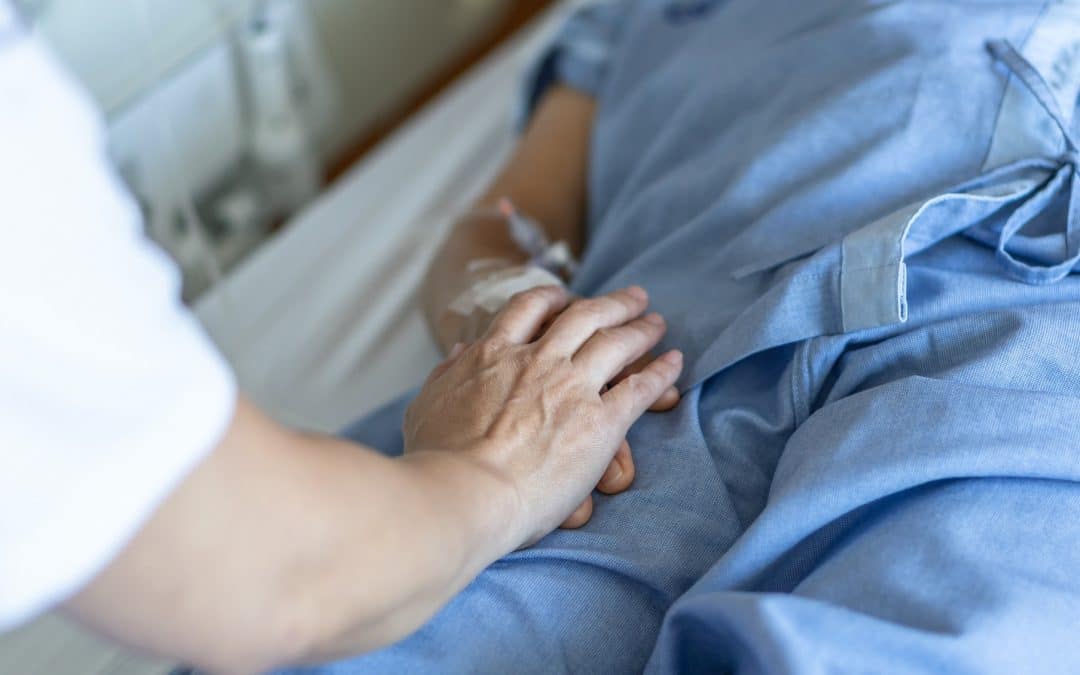
by Alliance VITA | September 11, 2020 | Euthanasia and Suicide, News
Alain Cocq, a 57-year-old Frenchman, has been fighting a courageous battle against a rare and incurable disease, which has made him severely disabled. In an attempt to publicly pressure French President Emmanuel Macron, he recently wrote an open letter requesting assisted suicide “based on compassion”.
On August 25, along with Jean-Luc Romero, President of the pro-euthanasia association (“ADMD”: The Right to Die in Dignity), Alain Cocq was able to express his concerns to Macron’s advisors in a telephone meeting.
President Macron replied that: “Because I am not above the law, I cannot grant your request”. Thereafter, on September 4, Alain Cocq announced that he would stop all food and drink until his death and begin broadcasting daily live-stream videos on Facebook, thereby provoking a controversy. As an activist for euthanasia, he hoped the media coverage would lead to a change in the Claeys-Leonetti law, which he qualifies as inhuman.
The next day, on September 5, a Facebook spokesperson announced in a press release that the video broadcast of Alain Cocq’s last moments had been blocked, declaring: “Although we respect his desire to draw attention to this complex issue, our experts have advised us to block Alain’s live-streaming since our company policy does not allow portrayal of suicide attempts”.
After three days without food nor water, Alain Cocq finally requested to be admitted to the Dijon University Hospital on the evening of September 7, where he also accepted palliative care. In view of his weakened condition, some euthanasia supporters suspected that he had been coerced. But Mr. Cocq confirmed that he had indeed asked for both nutrition and palliative care. He explained: “I was suffering too much, I would not have died in peace under these conditions”. On September 9, after resuming food and drink, he affirmed: “I should be able to go home in 10 days, maybe 15; the time to recover and to set up home hospital services. “
According to palliative care specialists, it is not unusual to see this kind of volte-face.
As president of the French Society for Counseling and Palliative Care (“SFAP”), Claire Fourcade has observed the complexity of patients and their ambivalence when faced with suffering and death. “It is an everyday occurrence for patients to change their minds; and it is provided for by the law. Palliative care means customizing patient care on a case-to-case basis, every day”. For example, caregivers have observed patients who refuse their IV infusion in the morning but accept it a few hours later. When experiencing critical pain or anxiety, patients may sometimes ask to die. But once they have been listened to, and their needs have been met, they may change their minds. Alliance VITA’s General Delegate, and spokesperson for Relieve Pain Without Killing, Tugdual Derville commented in a Tweet:
“Never be lured into a fatal snare by taking a person literally if he expresses a wish to die. Always consider a person as being worthy, worthy of being cared for and loved, with the potential to change his mind, even if it means rescinding his own promise. “
Nonetheless, Alain Cocq maintains his commitment to fight for a modification in the end-of-life law in France, in a different manner.
Dr. Bernard Debré, professor, and member of the National Consultative Committee on Ethics (“CCNE”), published an editorial criticizing the “euthanasia activists [who] pretend not to see what already exists to help patients at the end-of-life”. According to him the most important thing is to allow for a dialogue between the patient, his doctor and his family.
Although Alain Cocq’s case is unique, the extensive media coverage reminds us of other poignant cases in France that have sparked debates among citizens and swayed public opinion. Tugdual Derville investigates seven cases in his book “The Battle of Euthanasia” (Salvator Editions).
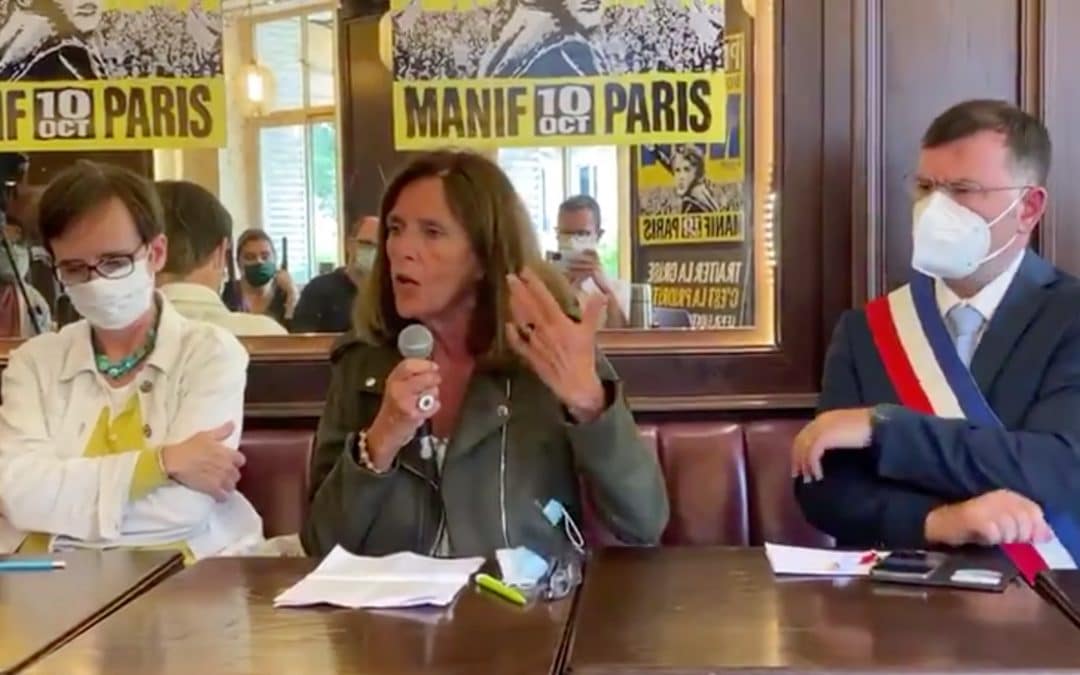
by Alliance VITA | August 26, 2020 | News, Bioethics Law
Following the adoption at 2nd reading, on August 1, of the bioethics bill by the National Assembly, a press conference by the Marchons Enfants collective! was held on August 26, 2020 in Paris.
Caroline Roux, Deputy General Delegate of Alliance VITA, took part in this press conference.
This second reading is a genuine ethical and legislative shipwreck.
The Prime Minister has a heavy responsibility. It was up to him not to rush these debates, when the emergencies are elsewhere. But he wanted to be rid of this text … thus putting future generations at great risk.
- Not only is the democratic debate not respected, with a text imposed on the sly in the middle of summer, less than 20% of deputies present and a scheduled time reduced to 25 hours.
- But also the French have been sidelined, often unaware of what is going on, with measures that keep changing from one reading to the next.
- The further we progress in the examination of this law, the less ethics it is and the more dangerous it becomes regarding the principles of protection of human dignity and life.
With an increasingly artificial procreation, which clearly inaugurates “a right to the child” (the deputies refused to write in stone that “no one has the right to the child”): ART without a father, parentage confusion, double donation of gametes which results in “making” children out of the ground, freezing of oocytes for a hypothetical late maternity by ART, risky for women’s health. A further step has been taken towards the procreation market with the collection and storage of human gametes by lucrative establishments. This is a terrible shift for France, which has always made the principle of non-commodification of humans and of the parts of their bodies, a fundamental ethical principle.
- By an increased selection of children before birth, on genetic criteria, in complete contradiction with the inclusive society policy that the government claims to be developing.
- crossing red lines and endangering the very integrity of the human species with the creation of human / animal chimeras and genetically modified human embryos.
Who gains from obstinately rejecting the precautionary principle? While the health crisis has made us realize that humanity is as much to protect as nature.
In the name of Alliance VITA which I represent, I insist: we are very mobilized against the legislative rider which blows up the framework for abortion in France by adding an unverifiable criterion of “psychosocial distress” to have recourse to medical termination of pregnancy, allowing an abortion until the last day of pregnancy.
We demand that this provision be withdrawn and that a support and solidarity policy be implemented for pregnant women facing difficulties, and that an epidemiological study be conducted over the last 20 years which should analyze the causes, conditions and consequences of abortion.
The revision of this bioethics law misses three major and urgent issues:
- genuinely fighting infertility,
- stopping the eugenics breaches and
- respecting the integrity of the human species.
We call on senators, who still have the power to change the law, to rise to the challenges to preserve the ethics, for the protection of the most vulnerable. “
With Marchons enfants, Alliance VITA calls on people to demonstrate their opposition to this bill and attachment to the rights of the most vulnerable, on October 10 throughout France.





